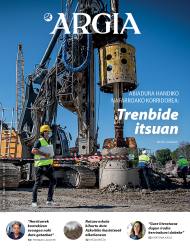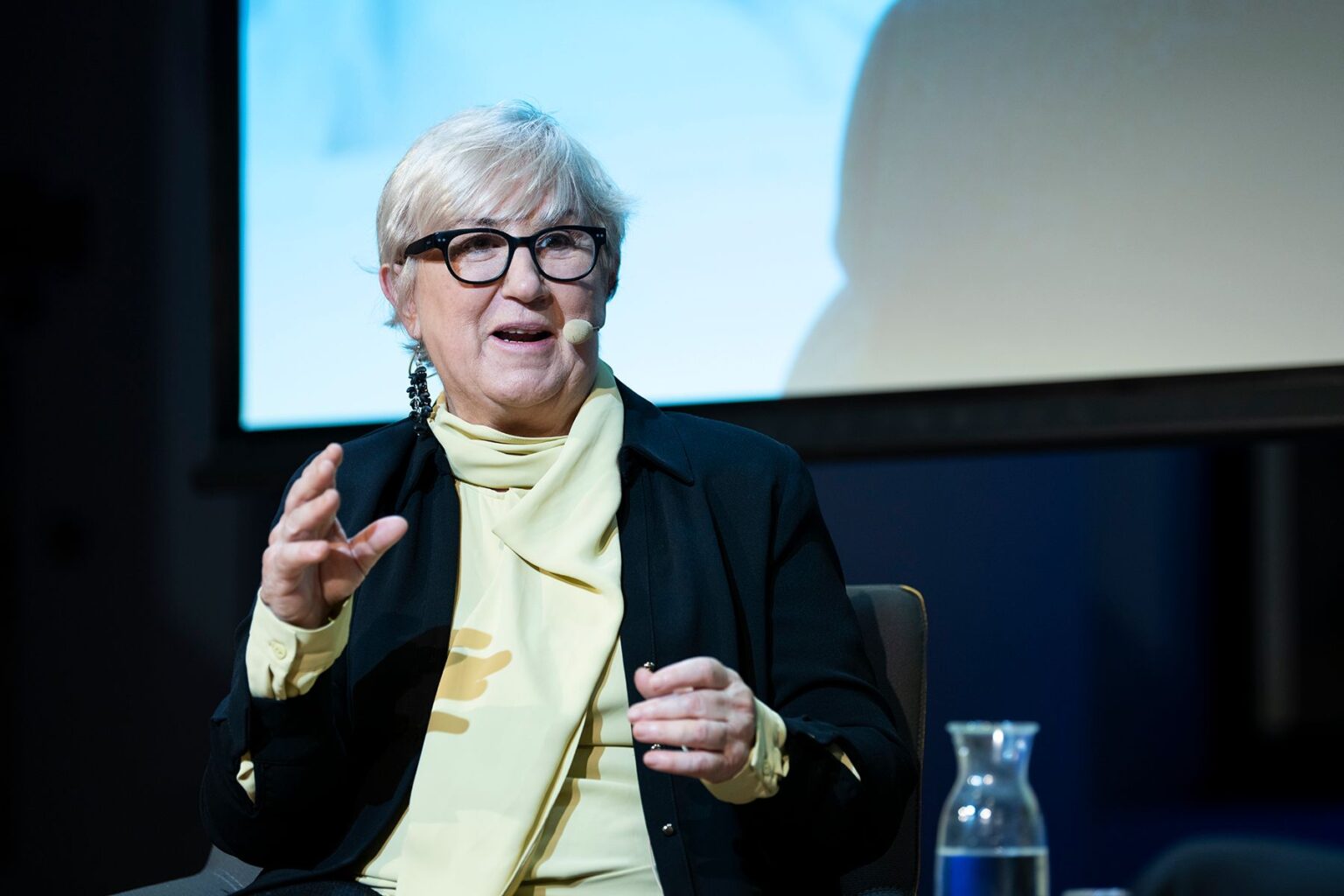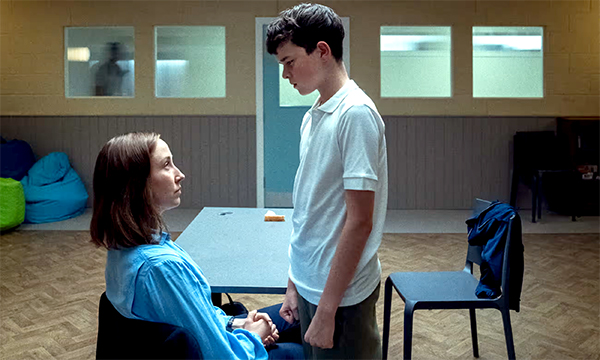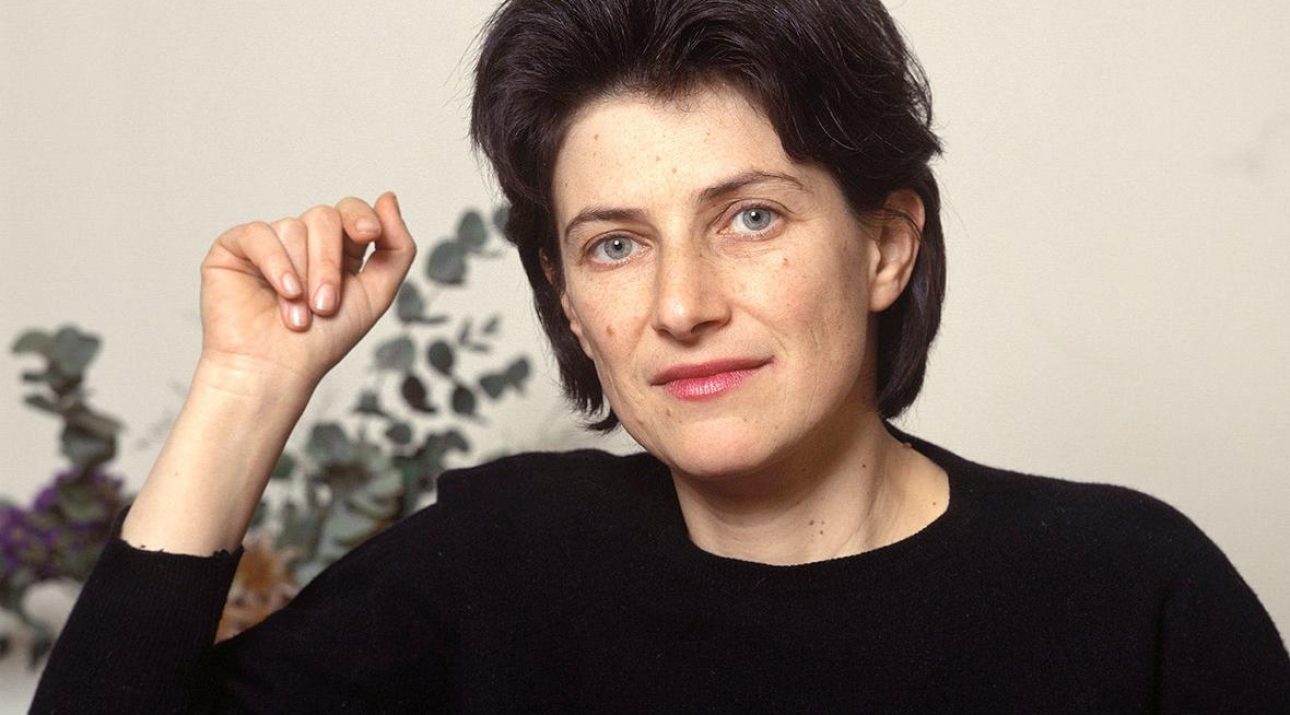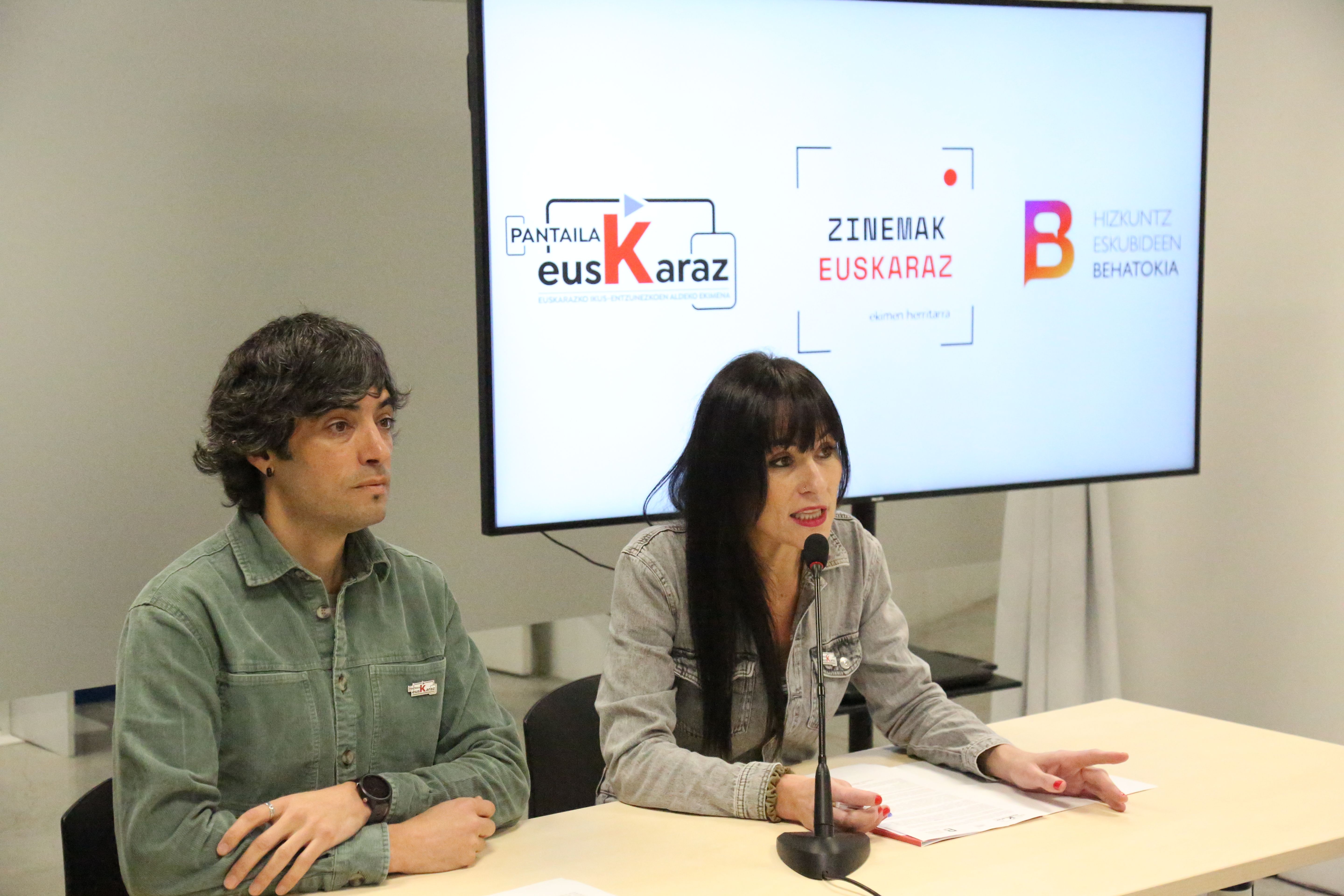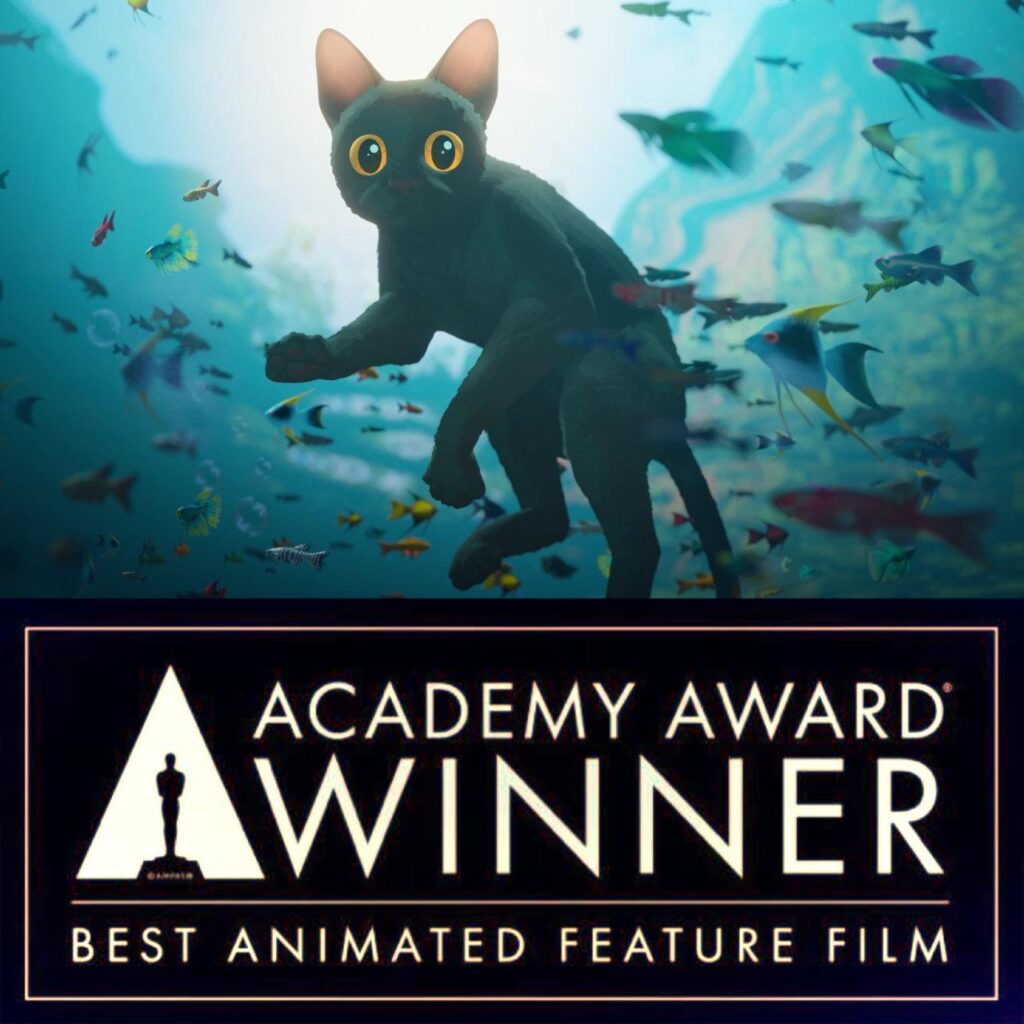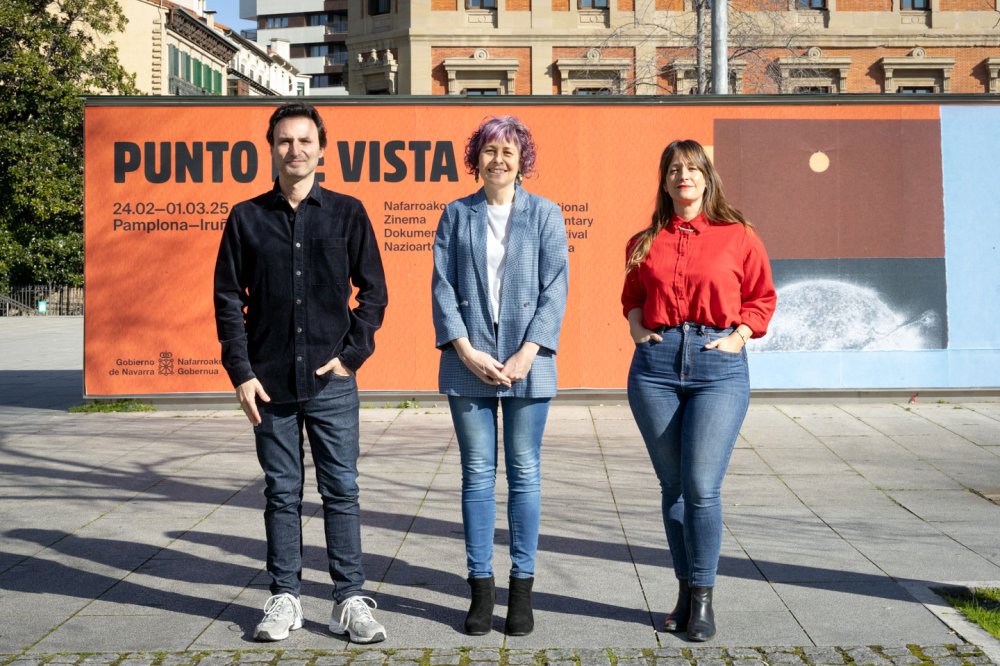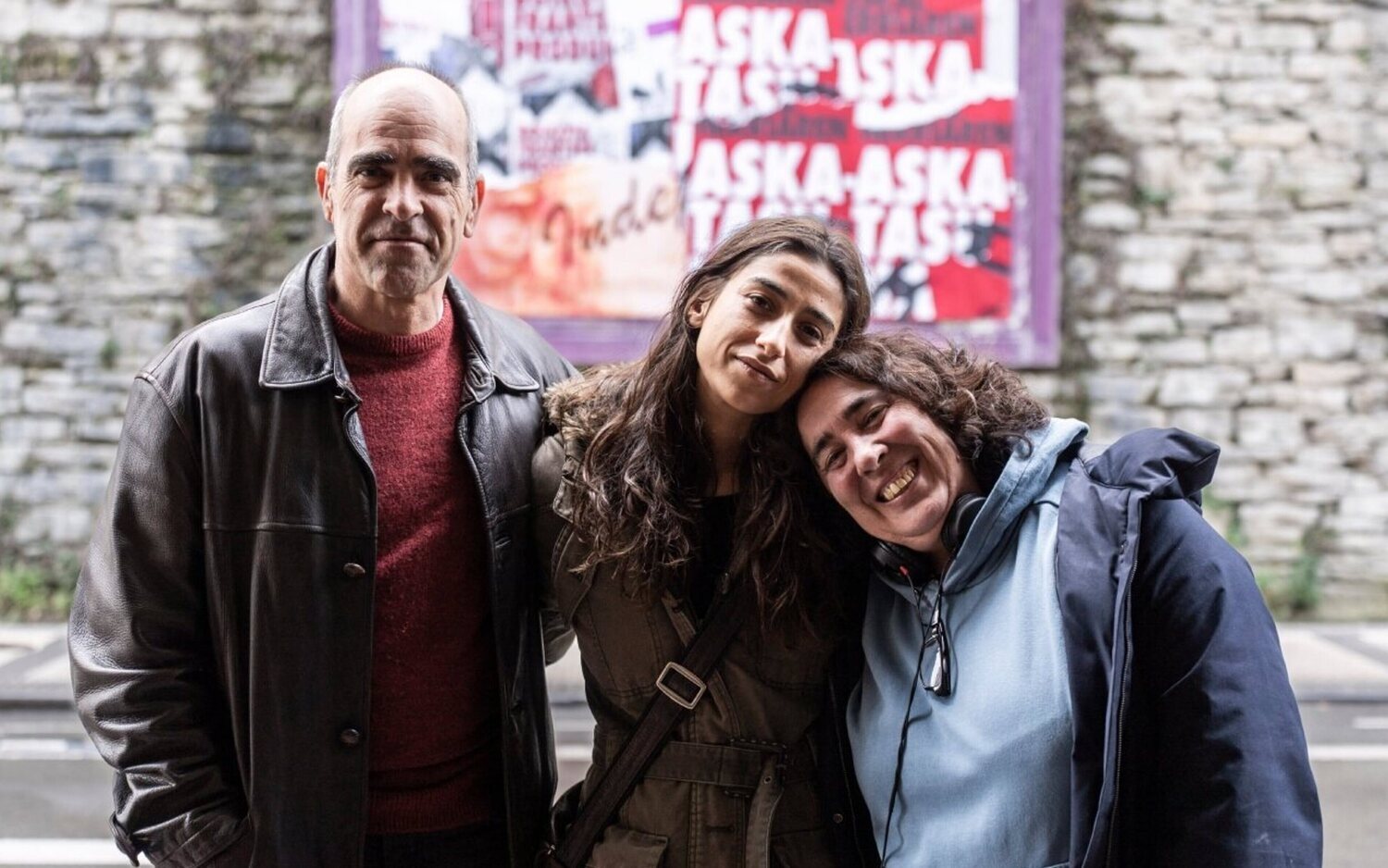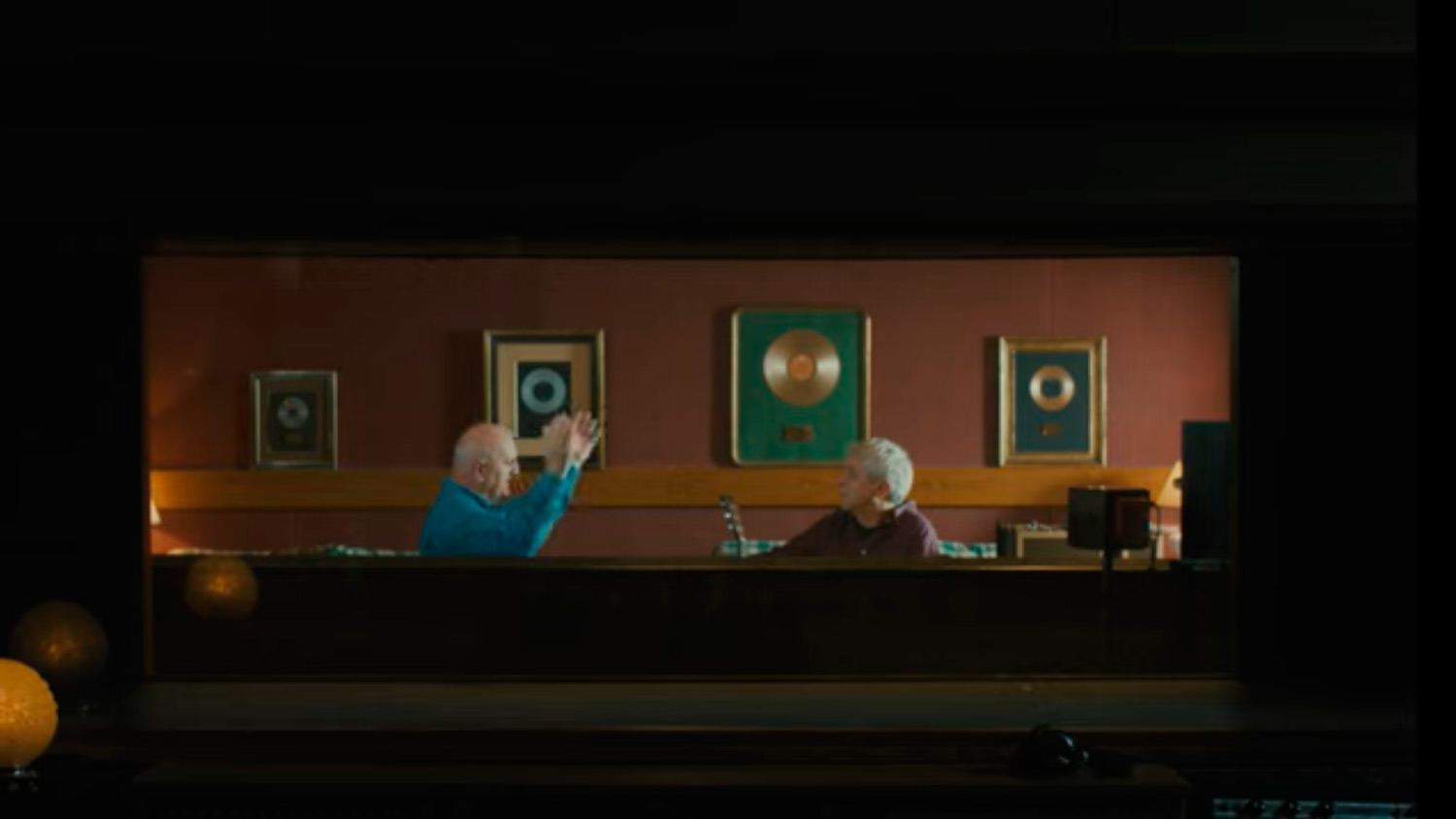"It's the first time a people and a politico-armed organization have left a conflict alone."
- We met the filmmaker on the last day of July at the newly opened film Getaria Enea in Getaria. Christelle Vessot, responsible for the area, welcomes us very well. The following day, L’hypothèse démocratique: Une histoire Basque (Democratic hypothesis: A Basque history) is a special projection of the film we have used to delve into the details of the work: the documentary narrates, through testimonies, the history of the Basque politico-armed conflict and its transformation.
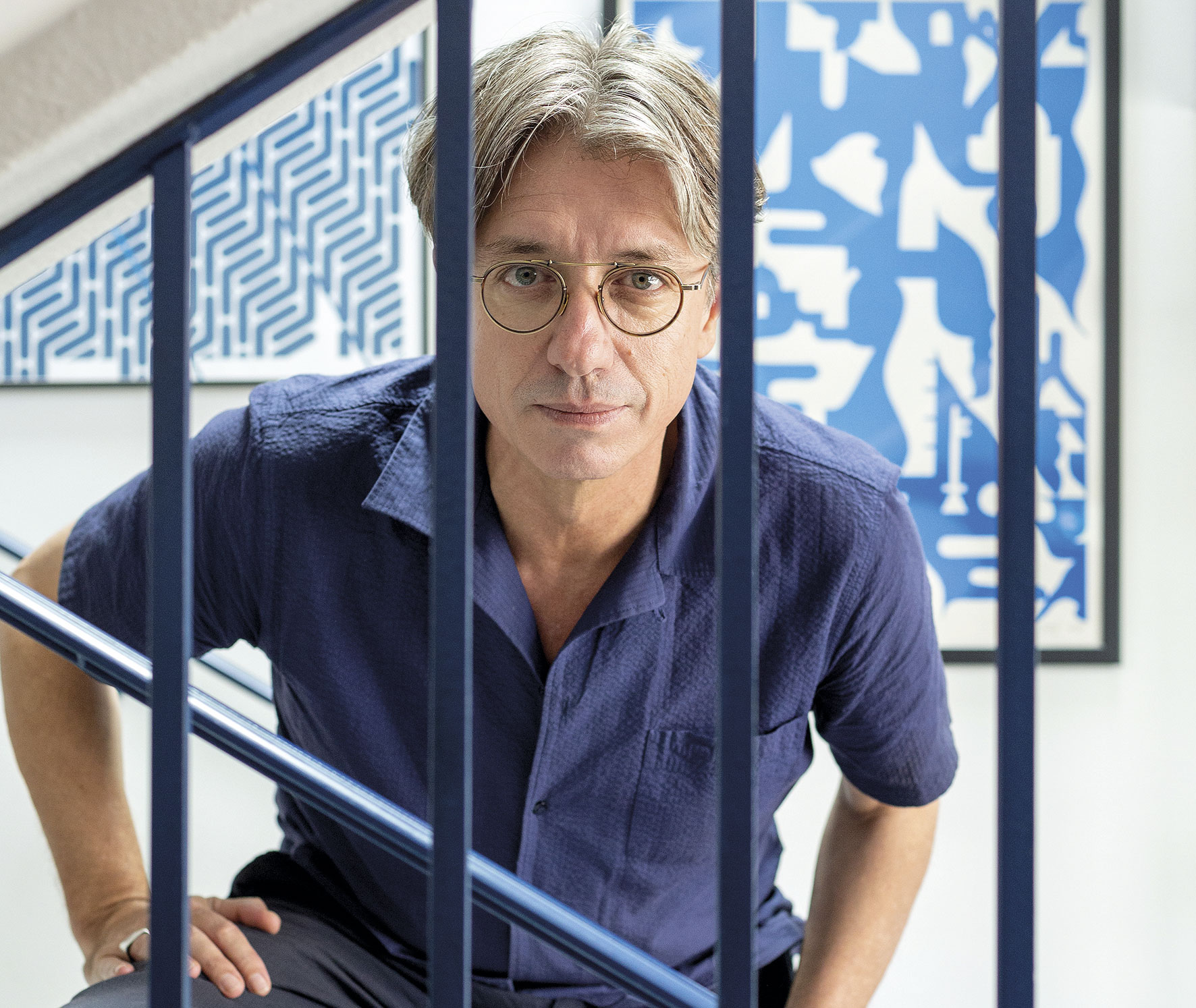
L’hypothese democratique premiered in April: Une histoire Basque, film that continues in theaters. It is not a slow achievement.
He first left in Euskal Herria on April 13, a week before the premiere in France. It was very important for me to show up on your territory first.
In the general context, cinema is experiencing a very special moment in France. After the pandemic, people have not returned to the theaters and it is a very hard time for independent cinema. On the other hand, after two years of closure a lot of films have been released and there has been a funnel effect such as that they leave more than 25 films a week and last much less in the rooms. In that context the film came out, and talking about it still in the theaters during the fourteenth or fifteenth week is a lucky thing.
You yourself have participated in many of the sessions of the film.
Yes, I've helped the film a lot, I think these kinds of documentaries ask for it. Cinemas also need that, filmmakers need to be there. Tomorrow the darkening session will be the 44 speech, I think I have come a long way to talk about the reception of the film.
And how has the reception been? How did I expect?
A lot of people have come to begin with. And it's been very surprising. I thought that, in relation to the reception in Euskal Herria, there would be people who affect this story, that we say militants and people in a wider circle around them. But it has gone further, far further. And I think this has to do with one specific question: the lack of narrative and sources of conflict, and the need for citizens to have a more comprehensive account of conflict.
On the other hand, I expected there to be a greater discrepancy or plurality of opinions, and there have been debates, yes, but no discrepancies. I've found a lot of ignorance, and I think it's one of the things that should give us what to think.
Because that ignorance has not only been found among those who have been "out" of the conflict, but also among those who have lived from within.
Indeed. In France, of course, it has been more evident, but I have also seen it in militant circles. I would like to tell you an anecdote on this, which happened at a session in Bordeaux. A young Basque woman spoke, who said that she was the daughter of a family of militants, and that this was the first time she had been told her story, that she had been told the story of her people, that she could take back her story. For me, that's what sums up the reception of the movie. And if you needed reasons to make the movie, there were lots of reasons, but one. They have missed part of your collective history.
How does the idea of this film come about?
It is a good question and it is not easy to answer. A number of reasons are mixed together and the protohistory begins in the 1970s, but it has to be said that I have been involved with this territory and its people for a long time, and that conflicts and their solution have always interested me. However, the fundamental cause of the film has been the invisibility and stigmatization that has taken place around this conflict and its transformation.
.jpg)
"Welcoming has to do with the lack of narrative and sources about the conflict and the need for citizens to have a more comprehensive account of the conflict"
Let's go step by step. 2011 was a milestone for you. On
October 20, 2011, when the end of the armed struggle was announced, and when there was a roadmap with the steps to follow along with the Spanish and French states, and when those two states did not appear…, that caught my attention. But the dynamic followed is unilateral, the gesture of Basque society and the political-armed organization ETA is unique in history. It is the first time that a people, a politico-armed organization, has emerged only from a conflict. You might think it would appear on the covers of all the newspapers the next day, but it wasn't. Moreover, the states ignored the gesture, and I believe that this shows how much they have wanted to build an internal colony in their territory. I am referring to the Franco regime. The need to build an internal enemy from the so-called democratic transition.
In fact, the disarmament dynamic started in 2016 was also a milestone for you.
Yes, in December 2016 I was in Euskal Herria. Three people from Basque civil society were arrested in Luhuso for attempting to deliver weapons, three people known for their commitment – a commitment without violence. And look, that very night, Bruno Le Roux, in his time as French interior minister, made very brief, truly shameful statements, and said that in collaboration with the Spanish anti-terrorist service they had hit ETA hard, arresting three executives. He knew perfectly well who those three people were and who were not members of an armed organization. We will have to see how the 16th trial room in Paris will explain to the French citizens that it has considered a terrorist act to neutralise and annul weapons.
Focused on the issue, in 2017 he published the short La paix maintenant, une exigeance populaire (Orain bakea, herri eskaera) [available on the ARGIA website].
When, after four days, the detainees, who for me are terrorism, were released, I met them thinking they could help them with the defence, because I know many left-wing magistrates. I was informed that they were determined to follow this dynamic of disarmament to the head, and I told them that perhaps they were very clear about the meaning of their action and their willingness to disarm the institutions, but that outside the territory was not so clear. And that the communications of Madrid and Paris distorted the story of the artisans of peace in order not to reach citizenship. Therefore, I proposed to work on external communication in a different way, and although at that time I intended to start a completely different project, I started working. Thus was born the 23-minute short, the first piece of a trilogy. We did it very quickly to spread it over the internet.
It was successful, right?
Yes, it opened up a lot and we raised money for the defence of detainees. Then we made a medium-length film to broadcast it on international television, Pays Basque et Liberté: A long chemin vers la paix (Basque Country and Freedom: Long road to peace). It was an introduction to the history of the conflict and its transformation, in which the views of the international agents involved in this last phase, called fundamentally unilateral, were gathered. It seemed important to me to give such an ecumenical and international vision – it seems to me that it gives legitimacy to your history and transformation – and to spread that idea internationally.
.jpg)
"The documentary has served to convey one thing that was very important to me: how, in the 1970s, the liberation struggle affected the Basque population very positively"
The short film, the television half-film and the documentary itself are mainly based on interviews. What were the criteria for selecting the interviewees?
The criterion was quite simple: regardless of whether they had been in any position in the conflict – agents, victims, negotiators, advisers, international observers – to have been involved in the transformation of the conflict. That was my limit. And that's why I haven't worked with the Spanish or the French internal ministry, because they haven't participated in that transformation. Well, you've been involved, but to fight transformation, and that's why I haven't recorded any testimony of your thinking. On the other hand, we receive their views daily in the media.
He collected a lot of materials.
Yes, I interviewed over 70 people, in total I have 315 hours. A lot.
In a two-hour documentary, not everything goes in. What would you like to do with the remaining material? With this
material you could make eleven other films, but it's not for me, and you'd get tired of me. I believe that in the first place we must return to the public that material, its history, and for that we want to create a digital platform where all that material is available to researchers, students and citizens. Because it lacks material. At the University of Sorbonne [Paris] we held a session in which it became clear that students and researchers do not have access to files, as in the French State the materials that are subject to the anti-terrorist law remain seized for 75 years. Having access to the integrity of the interviews would be very enriching.
Is the project of this website underway?
We are looking again for funding, both public and private, and I hope to be able to carry out the project in the very short term.
The film, for the time being, has been broadcast in the Basque Country and in the French State, and has been shown in other international places such as Greece. Do you intend to open it to the Spanish State Chambers?
I would very much like the film to be broadcast in halls like Catalonia. But I think it would also be interesting in other communities in the Spanish state, and I would very much like to be able to release a new film. At the moment, we do not know. I know that we would be in a lively debate and that we will certainly not be able to make projections tomorrow in Madrid. But we're trying. And that is what I would like to highlight in this interview: we are looking for independent distributors, solid enough for this documentary to reach the Spanish population. This documentary is not a great story, but it provides a historiographical contribution to the present and future historiography of this conflict. I think it is time to know the stories of others. Today, the Spanish communities know very well the story of the deep Spanish state, because, if they are adults, it is also time to know the story of the agents, victims and negotiators in conflict.
In addition to the interviews, he has also used the images of the archive, such as the images of political demonstrations and conferences and the citizens' declarations.
One of the pleasures of the elaboration of documentaries is the immersion in the files, which allows to relive the past. It brings to life thoughts, beings, emotions, dead. It was a great pleasure for me to use the file, and on the other hand it has served to convey something that was very important to me: how, in the 1970s, the liberation struggle had a very positive impact on the Basque population, and how that struggle had strong social support. Perhaps for the Basques it is quite clear, but not so much for the Spaniards or the French, and I thought it very important to remember that.
Among the images in the archive, a debate on the Burgos process has drawn my attention. This is a French television programme featuring, among others, lawyer Gisèle Halimi.
Yes, and that, first of all, shows us that the quality of television debates was enormous at that time, in terms of the abundance of critical intellectuals. Gisèle Halimi has died recently, but before, when did we last see him talking on television? Cigarette on my lips and thinking seriously? In recent years we have not seen it, there is no such quality debate on television, and that has to give us what to think about our democratic spaces. What is the role of television debates today, if not to strengthen neoliberalism?
Also in those most open television shows of the time we see something else: at that time they were not considered terrorists, while when they talked about you or the agents in conflict they said they were resistant. And for me, it was very important to highlight that word.
.jpg)
No other land dokumentalaren zuzendari Hamdan Ballal kolono sionistek jipoitu zuten astelehenean bere herrian, beste hainbat palestinarrekin batera, eta Israelgo militarrek eraman zuten atxilo ondoren. Astarte goizean askatu dute.
Donostiako Tabakaleran, beste urte batez, hitza eta irudia elkar nahasi eta lotu dituzte Zinea eta literatura jardunaldietan. Aurten, Chantal Akerman zinegile belgikarraren obra izan dute aztergai; haren film bana hautatu eta aztertu dute Itxaro Bordak, Karmele Jaiok eta Danele... [+]
35 film aurkeztu dira lehiaketara eta zortzi aukeratu dituzte ikusgai egoteko Euskal Herriko 51 udalerritan. Euskarazko lanak egiten dituzten sortzaileak eta haiek ekoitzitako film laburrak ezagutaraztea da helburua. Taupa mugimenduak antolatzen du ekimena.
Pantailak Euskarazek eta Hizkuntz Eskubideen Behatokiak aurkeztu dituzte datu "kezkagarriak". Euskaraz eskaini diren estreinaldi kopurua ez dela %1,6ra iritsi ondorioztatu dute. Erakunde publikoei eskatu diete "herritar guztien hizkuntza eskubideak" zinemetan ere... [+]
Geroz eta ekoizpen gehiagok baliatzen dituzte teknologia berriak, izan plano orokor eta jendetsuak figurante bidez egitea aurrezteko, izan efektu bereziak are azkarrago egiteko. Azken urtean, dena den, Euskal Herriko zine-aretoak gehien bete dituztenetako bi pelikulek adimen... [+]
Otsailaren 24tik eta martxoaren 1era bitartean, astebetez 60 lan proiektatuko dituzte Punto de Vista zinema dokumentalaren jaialdian. Hamar film luze eta zazpi labur lehiatuko dira Sail Ofizialean; tartean mundu mailako lau estreinaldi eta Maddi Barber eta Marina Lameiro... [+]
A conference for architects has just been held in Madrid to discuss the crisis of the professional architect. They have distinguished the traditional and contemporary way of being an architect. What is traditional? From the epic architect who appears in The Brutalist, where... [+]
Itoiz, udako sesioak filma estreinatu dute zinema aretoetan. Juan Carlos Perez taldekidearen hitz eta doinuak biltzen ditu Larraitz Zuazo, Zuri Goikoetxea eta Ainhoa Andrakaren filmak. Haiekin mintzatu gara Metropoli Foralean.







